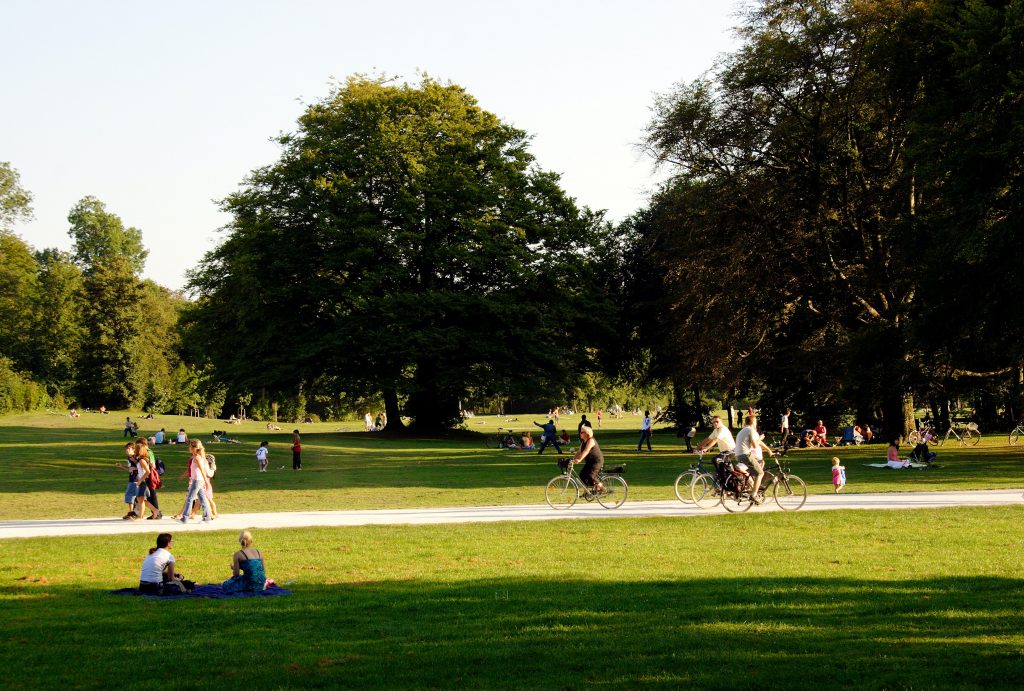
Updated on 30 June 2021
On 22 February 2021, the Government published its ‘Roadmap out of Lockdown’ which set out how national coronavirus restrictions would be eased in stages, with reviews taking place on set dates.
We passed the first milestone and changes to restrictions came on the 8th March, with the re-opening of schools and allowing people to meet one on one outdoors. The earliest possible date that most restrictions could be lifted is 19 July, however this is subject to the step by step review process.
The current situation
Our surveillance shows case rates have remained stable in the majority of age groups around England, although hospitalisations continue to fall, which shows the vaccine is working. This, along with the concern about cases of the variant VOC-21APR-02 which was first detected in India, should keep us cautious. We must continue to do all we can to reduce infections.
On the 17 May another change to the restrictions on social contact was introduced. Gatherings of up to 30 people are now allowed outdoors and indoors the rule of six applies, or two households.
Indoor hospitality has now reopened as well as indoor entertainment venues such as cinemas and children's play areas. The rest of the accommodation sector, including hotels, hostels and B&Bs are now open and indoor adult group sports and exercise classes have resumed.
You can read more about this stage of unlocking here.
As the rules around social contacts change, it is important to remember that evidence shows that meeting outdoors is safer than meeting indoors, as you are much less likely to pass on or catch COVID-19 in the open air, particularly if you are also adhering to social distancing, and limiting you contacts.
It is also important to remember that while the requirement to stay at home has also been lifted, the advice is to minimise travel but if you do need to travel, to plan your trip carefully, wash your hands often, social distance and wear a mask in all applicable settings.
These steps will help stop the transmission of coronavirus from different areas of the country, and from household to household. See the guidance for more information on how to stop the spread of coronavirus, and importantly why we recommend each of these actions.
Keeping infection rates low
Spring is here and we know how much people want to be reunited with their loved ones and while the restrictions protecting us won’t last forever, they remain very important right now.
Whilst we are making great progress with the vaccination programme and coronavirus infection rates continue to fall, we are still in an important moment, particularly as we continue to monitor variants. If you are invited for your vaccine, please take up the offer and also ensure you attend your second dose appointment.
Receiving a COVID-19 vaccine will offer people personal protection and everyone should have confidence in the effectiveness of their jab, but being vaccinated doesn’t mean the restrictions no longer apply as you may still be able to pass on the virus even once you have had the vaccine. It will continue to keep us all safe if we stick to the rules following vaccination and as we continue learning about how the virus is transmitted by people who are vaccinated.
Whilst we have been successful in reducing infections during the national lockdown, case numbers are still relatively high in certain parts of the country, and it is important to remember that around one in three people do not get symptoms and can pass on COVID-19 unknowingly.
This is why, as we begin to mix more, staying two metres apart, washing our hands regularly and wearing a face covering in all settings where it is required will keep making a vital contribution to keeping infection rates low. Relaxing our vigilance, even after we have had the vaccine, could undo what we have all made huge sacrifices to achieve.
While many vulnerable people have now received a vaccine, and people in their 30s are now eligible, not everyone at risk of serious illness is protected. Those who are not yet vaccinated remain at the same risk of catching the virus if they come into contact with it and of becoming very unwell as a consequence.
If we follow the guidance by keeping our plans local, coupled with protective actions such as remaining in small groups and only meeting outdoors, we can save lives. Doing this will also keep us on track towards society opening up fully, and regaining the rewards and joys we remember from before the pandemic.
Looking ahead
The next stage in the Roadmap for easing restrictions will come no earlier than the 19 July.
People are rightfully feeling optimistic about the coming months and we have much to look forward to. We all want to get there and together we can, if we keep our focus on following the guidance and protecting ourselves and others throughout the different stages of the roadmap.
Subscribe to our blog to keep up to date on new posts.
